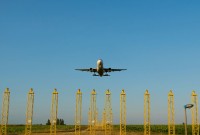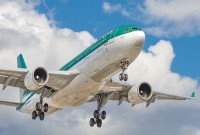- Home
- Business Processes
- Industry Knowledge
- Aerospace Industry
- Automotive Industry
- Banking Domain
- BFSI Industry
- Consumer/ FMCG Industry
- Chemicals Industry
- Engineering & Construction
- Energy Industry
- Education Domain
- Finance Domain
- Hospitality Domain
- Healthcare Industry
- Insurance Domain
- Retail Industry
- Travel and Tourism Domain
- Telecom Industry
- Leadership Skills
- eLearning
- Home
- Domain Knowledge
- Aerospace Industry
- Civil Aerospace: Civil Aircraft Manufacturing Industry
Civil Aerospace: Civil Aircraft Manufacturing Industry
This article discusses sectors within the Civil Aerospace Sector and its subsectors, products, and services. This article provides an overview of the definition, industry products, industry activities, and global locations.
The Global Commercial Aircraft Manufacturing industry consists of businesses that produce civil complete aircraft; aerospace engines, propulsion units, auxiliary equipment or parts; prototypes of aerospace products; aircraft conversion; and complete aircraft or propulsion systems overhaul and rebuilding. An aircraft manufacturer is a company or individual involved in the various aspects of designing, building, testing, selling, and maintaining aircraft, aircraft parts, missiles, rockets, or spacecraft. Leading companies like Boeing, United Technologies Corporation, and Lockheed Martin Corp. are among the most widely known aerospace manufacturers in the world.
The civil aircraft manufacturing subsector is responsible for producing aircraft engines and engine parts, general aircraft, large commercial aircraft (LCA), regional aircraft, and other parts and auxiliary equipment. The industry has global revenues of $150bn.
Industry Products:
- Aircraft engines and Engine Parts
- General Aircraft
- Large Commercial Aircraft (LCA)
- Regional aircraft
- Rotorcraft and Business Jets
- Other Parts and Auxiliary Equipment
Industry Activities:
- Manufacturing aircraft
- Manufacturing aerospace engines, propulsion units, auxiliary equipment or parts
- Developing and making prototypes.
- Aircraft conversion
- Complete aircraft or propulsion systems overhauling
Important Global Locations:
Important locations of the civil aerospace industry worldwide include Seattle, Dayton, Ohio and St. Louis in the USA (Boeing), Montreal in Canada (Bombardier), Toulouse in France and Hamburg in Germany (both Airbus/EADS), the North-West of England and Bristol in the UK (BAE Systems, Airbus and AgustaWestland), as well as São José dos Campos in Brazil where Embraer is based.
Market Players:
- Boeing
- Bombardier
- EADS
- General Electric Company
- Rolls-Royce Industry
Industry Analysis & Industry Trends:
The Global Commercial Aircraft Manufacturing industry experienced turbulent conditions in the five years through 2012 but was able to manage without any significant impact on profits. Revenue is estimated at around $150 billion and the industry witnessed very strong revenue growth in 2006 and 2007 due to buoyant demand from developing countries due to increasing demand for air travel and replacements in aircraft fleet. This created a strong backlog of orders for major producers, which gave them a beneficial position during the recent economic downturn.
Suggested Reading and Resources
Related Links
You May Also Like
-
Aerospace Industry - The Competitive Landscape
This article provides an overview of the competitive landscape of the aerospace industry. Read how the compaction is shaped up across the US and the globe, followed by a detailed discussion of the top 5 players in the sector in terms of revenue.
-
Civil Aerospace Sector - Sector Profile
In this article, we will discuss the four important sub-sectors of the Civil Aerospace Sector namely “Civil Aircraft Manufacturing”, “Commercial Avionics”, “MRO” and “Commercial Simulation & Training”.
-
Challenges in the Aerospace and Defense Industry
New market dynamics are dramatically changing the way A&D companies serve their customers, collaborate with partners, and take ideas and solutions to the market. Given below are several vitally important challenges that are currently confronting the aerospace and defense industry and strategies to mitigate them.
-
Civil Aerospace: Commercial Avionics Industry
Commercial avionics refers to cockpit electronics and airborne equipment, although it doesn't include antennas, recorders, or other passenger-only cabin systems. Avionics is referred to denote the electronic systems that are utilized in aircraft.
-
An overview of the Aerospace Industry. A brief account of how modern aerospace began way back with Sir George Cayley in 1799 and the success story of the Wright Brothers to today's massive international airspace developments.
-
Key Sectors of Aerospace and Defense Industry
Understand the categorization of the aerospace industry to various sectors based on the services it currently provides. Understand the key constituents under these sectors and activities under each of these sectors.
-
Aerospace Industry: The Business Model
In this article, we will discuss the value chain of the Aerospace Industry and will define the generic business model to understand the key process areas in the aerospace industry. This will provide you with a basic understanding of key activities in the industry.
-
Application of Aviation in Military – A Short History
Aerospace is an industry that has a history of about a century in the defense space. This article discusses how the historic flight of the Wright brothers in 1908 gave birth to the aerospace defense industry that today employs 850K people in the US only.
-
Civil Aerospace: Maintenance, Repair & Overhaul (MRO)
This subsector under the civil aerospace industry includes the maintenance, repair, and overhaul (Known as MRO) of civil aircraft and aircraft components. This includes line and heavy maintenance of civil aircraft, as well as repair and overhaul of all parts of an aircraft, including engines, electronic components, and avionics, instruments, and aircraft structures.
-
Civil Aerospace: Civil Aircraft Manufacturing Industry
This article discusses sectors within the Civil Aerospace Sector and its subsectors, products, and services. This article provides an overview of the definition, industry products, industry activities, and global locations.
Explore Our Free Training Articles or
Sign Up to Start With Our eLearning Courses

About Us
Learning
© 2023 TechnoFunc, All Rights Reserved










